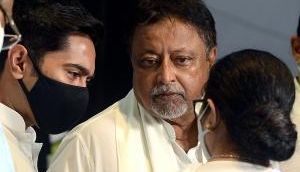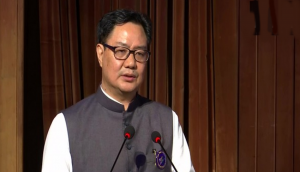
Chikungunya cases in Delhi have shot up to 52,93, with an over 43% rise in the number of reported cases of the vector-borne disease in the last one week alone.
According to a municipal report released today, of the total cases recorded till 1 October, over 500 of them have been reported in areas falling under the North Delhi Municipal Corporation (NDMC).
Nearly 3,700 cases were reported in Delhi till 24 September, according to SDMC, which tabulates the data for vector-borne disease cases in the national capital on behalf of all the civic bodies.
Among the three corporations, 515 cases in areas under the NDMC, 498 under the South Delhi Municipal Corporation and 172 under the East Delhi Municipal Corporation have been reported this season.
At least 15 fatalities due to complications triggered by the disease have been reported at various hospitals in the city though the civic bodies have kept the death tally at zero.
Delhi and other parts of north India are facing a spike in chikungunya cases after nearly 10 years, and experts had earlier conjectured that the rising number of cases could have been due to "evolution" in the chikungunya virus (CHIKV).
However, doctors at AIIMS have identified the genotype of the CHIKV which is the same as the one that caused the 2006 outbreak of the vector-borne disease.
"We have identified the genotype of the virus--East Central South African--and sent the report to the National Vector-Borne Disease Control Programme (NVBDCP). It is the same genotype that was in circulation in 2006 outbreak," Lalit Dar of Department of Microbiology at AIIMS had earlier said.
Chikungunya is generally considered a non-fatal disease. It is caused by the chikungunya virus which has one serotype only. There are three genotypes of this serotype -- Asian, West African and East Central South African.
A genotype is the part (DNA sequence) of the genetic makeup of a cell and serotypes are groups within a single species of microorganisms, such as bacteria or viruses, which share distinctive surface structures.
-PTI




_in_Assams_Dibrugarh_(Photo_257977_300x172.jpg)


![BJP's Kapil Mishra recreates Shankar Mahadevan’s ‘Breathless’ song to highlight Delhi pollution [WATCH] BJP's Kapil Mishra recreates Shankar Mahadevan’s ‘Breathless’ song to highlight Delhi pollution [WATCH]](https://images.catchnews.com/upload/2022/11/03/kapil-mishra_240884_300x172.png)

![Anupam Kher shares pictures of his toned body on 67th birthday [MUST SEE] Anupam Kher shares pictures of his toned body on 67th birthday [MUST SEE]](https://images.catchnews.com/upload/2022/03/07/Anupam_kher_231145_300x172.jpg)





_in_Assams_Dibrugarh_(Photo_257977_1600x1200.jpg)
